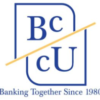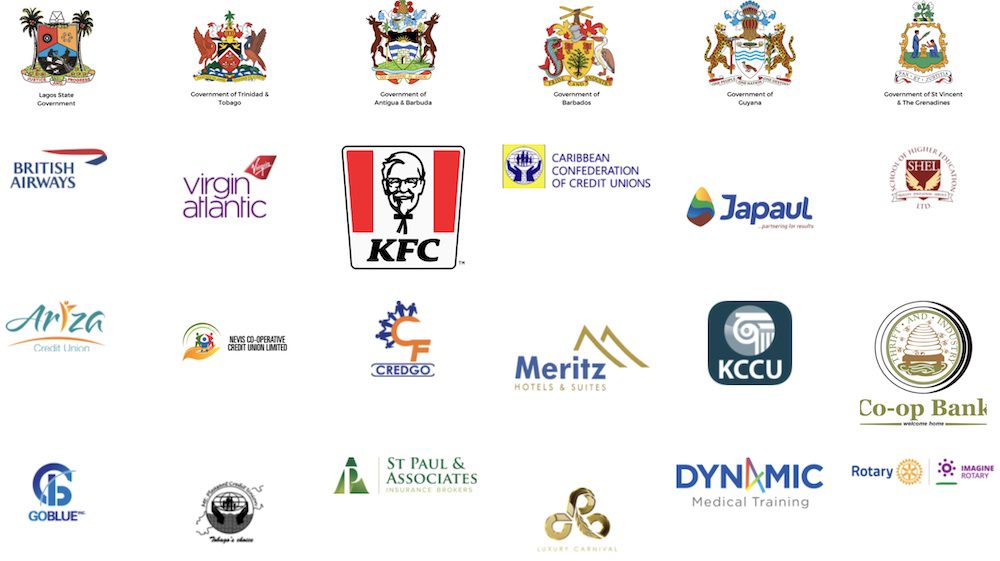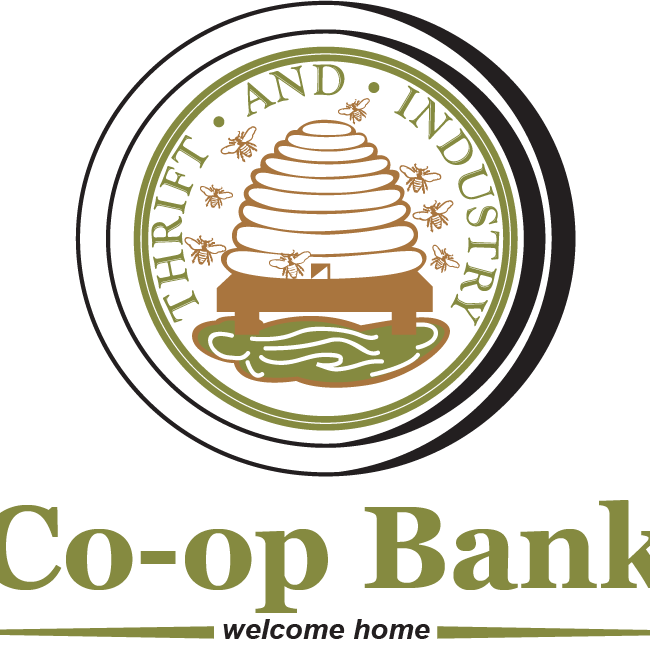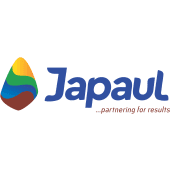Overview
In today’s competitive market landscape, traditional marketing strategies that focus solely on brand statements, slogans, and one-way advertising are no longer sufficient. Consumers are more discerning, tech-savvy, and socially conscious than ever before. The Caribbean market, and particularly Belize, is witnessing a shift in consumer expectations, with more emphasis placed on values, authenticity, and impact.
This intensive training program introduces a transformative approach to marketing – Value-Based Marketing.
Value-based marketing moves beyond mere advertising to focus on creating genuine connections, fostering brand loyalty, and delivering meaningful benefits to both individuals and society. This training is specifically designed for Caribbean marketers who want to rethink and rebuild their strategies to engage today’s audiences by providing real, authentic value that resonates deeply.
Why Value-Based Marketing for The Caribbean?
Belize’s unique economic and cultural landscape, coupled with its diverse industries, presents both opportunities and challenges for marketers. By focusing on value-based strategies, Belizean and Caribbean businesses can stand out from the crowd, build customer loyalty, and drive long-term success. In sectors such as tourism, finance, government, non-profits, and technology, value-based marketing offers a way to not only connect with audiences but to become a force for positive change in the community.
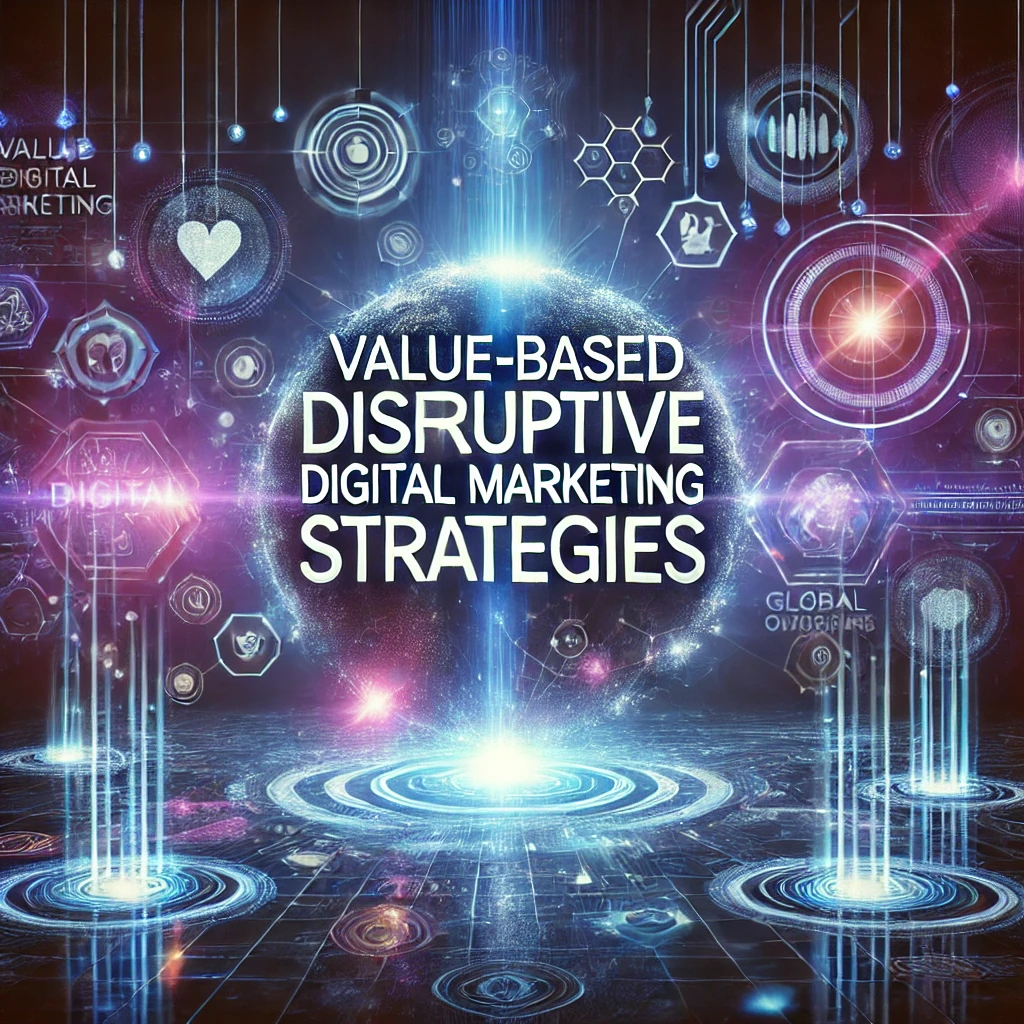
Overview

In today’s competitive market landscape, traditional marketing strategies that focus solely on brand statements, slogans, and one-way advertising are no longer sufficient. Consumers are more discerning, tech-savvy, and socially conscious than ever before. The Caribbean market, and particularly Belize, is witnessing a shift in consumer expectations, with more emphasis placed on values, authenticity, and impact.
This intensive training program introduces a transformative approach to marketing – Value-Based Marketing.
Value-based marketing moves beyond mere advertising to focus on creating genuine connections, fostering brand loyalty, and delivering meaningful benefits to both individuals and society. This training is specifically designed for Caribbean marketers who want to rethink and rebuild their strategies to engage today’s audiences by providing real, authentic value that resonates deeply.
Why Value-Based Marketing for The Caribbean?
Belize’s unique economic and cultural landscape, coupled with its diverse industries, presents both opportunities and challenges for marketers. By focusing on value-based strategies, Belizean and Caribbean businesses can stand out from the crowd, build customer loyalty, and drive long-term success. In sectors such as tourism, finance, government, non-profits, and technology, value-based marketing offers a way to not only connect with audiences but to become a force for positive change in the community.
Target Audience

- Marketing & PR professionals, brand managers, digital strategists, content creators, and social media managers.
- Executives and entrepreneurs aiming to leverage value-driven strategies to strengthen brand presence in the digital landscape.
- Marketing managers, business leaders, public relations experts, and decision-makers from various sectors, including tourism, banking, finance, credit unions, government agencies, insurance, non-profits & charities, food & beverage, e-commerce, technology, and service-based industries.
Program Objectives:
- Equip participants with cutting-edge marketing tools and platforms.
- Enable value-driven approaches focused on long-term customer loyalty.
- Empower participants to use data-driven insights, automation, and AI for personalized customer journeys.
- Explore disruptive strategies for sustainable growth through value-based marketing.
This full-day intensive training program equips marketers with cutting-edge knowledge and hands-on experience in value-based digital marketing. Featuring the latest tools, platforms, and strategies, the program emphasizes creating impact through customer-centric and data-driven approaches, with a dedicated focus on marketing automation and AI-powered strategies.

Target Audience
- Marketing & PR professionals, brand managers, digital strategists, content creators, and social media managers.
- Executives and entrepreneurs aiming to leverage value-driven strategies to strengthen brand presence in the digital landscape.
- Marketing managers, business leaders, public relations experts, and decision-makers from various sectors, including tourism, banking, finance, credit unions, government agencies, insurance, non-profits & charities, food & beverage, e-commerce, technology, and service-based industries.
Program Objectives:
- Equip participants with cutting-edge marketing tools and platforms.
- Enable value-driven approaches focused on long-term customer loyalty.
- Empower participants to use data-driven insights, automation, and AI for personalized customer journeys.
- Explore disruptive strategies for sustainable growth through value-based marketing.
This full-day intensive training program equips marketers with cutting-edge knowledge and hands-on experience in value-based digital marketing. Featuring the latest tools, platforms, and strategies, the program emphasizes creating impact through customer-centric and data-driven approaches, with a dedicated focus on marketing automation and AI-powered strategies.
Return on Investment
Increased Employability:
Acquire specialized skills and certifications that are highly valued by employers, leading to better job prospects and higher earning potential.
Risk Mitigation:
Equip yourself with the knowledge and expertise to identify, assess, and mitigate cybersecurity risks, helping organizations safeguard their assets and reputation.
Cost Savings:
By preventing and mitigating cyber threats, organizations can avoid costly data breaches, regulatory fines, and reputational damage, resulting in significant cost savings in the long run.
Career Growth:
Position yourself as a trusted cybersecurity professional, opening up opportunities for career advancement, leadership roles, and higher salaries within the industry.
Learning Outcomes
By the end of this course, participants will:
- Understand the Principles of Value-Based Marketing
Gain a foundational understanding of value-based marketing and how it differs from traditional approaches. Learn why this approach is more impactful, particularly in the Caribbean market, where personal connections, cultural values, and community relationships play a significant role. - Identify Key Strategies for Value Creation
Learn how to design and implement marketing strategies that focus on creating real value for consumers. Explore techniques for building trust, authenticity, and engagement with audiences by aligning marketing efforts with social, cultural, and community values. - Create Value-Driven Content and Campaigns
Learn techniques for creating content that prioritizes value and emotional connection over direct sales pitches. Discover how to develop stories, educational resources, and campaigns that resonate with the community and reflect a brand’s core values. - Utilize Digital Tools for Value-Driven Engagement
Explore how digital platforms and tools can be used to amplify value-based marketing messages. Gain hands-on experience with tools that facilitate engagement, data-driven targeting, and analytics to measure campaign impact. - Measure the Impact of Value-Based Marketing
Learn how to establish metrics and key performance indicators (KPIs) that track the effectiveness of value-based marketing initiatives. Discover how to evaluate success not only in terms of ROI but also in customer loyalty, brand sentiment, and community impact. - Develop Sector-Specific Strategies and Applications
Understand how value-based marketing principles can be applied to various industries within Belize, such as:
- Tourism: Attracting visitors by promoting Belize’s natural beauty and cultural heritage through storytelling and sustainable practices.
- Banking & Finance: Building trust with customers by offering transparency, financial education, and community involvement.
- Government Agencies: Fostering public trust by prioritizing transparency, education, and accessibility in communications.
- Insurance Companies: Emphasizing empathy and support by educating clients about protection and financial security.
- Non-Profits: Connecting with supporters on a deeper level by focusing on social impact stories and community engagement.
- Food & Beverage: Creating resonance by highlighting local ingredients, sustainability, and the importance of supporting local farmers.
- E-commerce & Technology: Building user loyalty by improving user experience, addressing community needs, and promoting cybersecurity.
- Service-Based Businesses: Providing value by offering personalized solutions, expert insights, and a commitment to client well-being.
Detailed Agenda
Session 1: The Foundation of Value-Based Marketing
- Time: 9:00 AM – 10:15 AM
- Objective: To introduce participants to customer-centric, value-based marketing concepts.
- Content:
- Understanding the difference between value-based and product-centric marketing.
- Case studies of brands that successfully use value-based marketing.
- Activity: Interactive discussion and analysis of value-driven brands.
Session 2: Leveraging Disruptive Marketing Tools & Technologies
- Time: 10:30 AM – 11:45 AM
- Objective: To introduce essential marketing tools for real-time engagement and automation.
- Content:
- Overview of trending social media, content creation, CRM, and analytics tools.
- Introduction to AI-powered marketing, including predictive analytics and customer service chatbots.
- Activity: Hands-on exploration of key tools, guided exercises, and Q&A.
Session 3: Data-Driven Targeting and Audience Segmentation
- Time: 12:00 PM – 1:15 PM
- Objective: To help participants implement data-driven strategies for precise audience targeting.
- Content:
- Defining customer personas using behavioural and demographic data.
- Real-time personalization techniques and segmentation models.
- Activity: Workshop on creating targeted audience profiles and segmentation plans.
Lunch Break
- Time: 1:15 PM – 2:00 PM
Session 4: Marketing Automation & AI in Marketing
- Time: 2:00 PM – 3:15 PM
- Objective: To equip participants with knowledge of automation and AI in marketing to drive efficiency and personalized experiences.
- Content:
- Overview of marketing automation: what it is, why it matters, and how it improves workflow and engagement.
- Key marketing automation platforms (e.g., HubSpot, Marketo, Salesforce).
- AI-powered marketing tools: chatbots, customer behavior prediction, dynamic content personalization, and voice recognition in customer service.
- Use cases for AI in marketing, such as AI-driven content generation, ad targeting, and audience analysis.
- Activity: Practical exercise where participants design a basic automated marketing workflow (e.g., email campaign) and experiment with an AI tool for personalized content recommendations.
Session 4: Marketing Automation & AI in Marketing
- Time: 2:00 PM – 3:15 PM
- Objective: To equip participants with knowledge of automation and AI in marketing to drive efficiency and personalized experiences.
- Content:
- Overview of marketing automation: what it is, why it matters, and how it improves workflow and engagement.
- Key marketing automation platforms (e.g., HubSpot, Marketo, Salesforce).
- AI-powered marketing tools: chatbots, customer behavior prediction, dynamic content personalization, and voice recognition in customer service.
- Use cases for AI in marketing, such as AI-driven content generation, ad targeting, and audience analysis.
- Activity: Practical exercise where participants design a basic automated marketing workflow (e.g., email campaign) and experiment with an AI tool for personalized content recommendations.
Session 5: Crafting Compelling, Value-Driven Content
- Time: 3:30 PM – 4:30 PM
- Objective: To teach participants to create content that resonates with audiences and conveys brand values effectively.
- Content:
- Storytelling techniques that build emotional connections.
- Building content that aligns with customer expectations.
- Multi-format content creation and cross-platform adaptation.
- Activity: Participants will brainstorm and develop a sample content piece focused on delivering brand value.
Session 6: Advanced Social Media Strategies for Maximum Engagement
- Time: 4:45 PM – 5:45 PM
- Objective: To explore advanced social media tactics that foster community, engagement, and brand value.
- Content:
- Value-based social media marketing strategies.
- Leveraging trends such as influencer partnerships, user-generated content, and social proof.
- Introduction to social media ad targeting and retargeting.
- Activity: Practical exercise on designing a social media campaign using value-driven principles.
Session 7: Measuring Success – KPIs and Metrics in Value-Based Marketing
- Time: 6:00 PM – 7:00 PM
- Objective: To ensure participants can track and measure the success of their marketing campaigns.
- Content:
- Key performance indicators (KPIs) in value-based marketing.
- Tools and frameworks for monitoring campaign performance, including Google Analytics, social media insights, and customer feedback systems.
- Activity: Group exercise to set KPIs for a sample value-driven campaign.
Key Takeaways
Understanding Value-Based Marketing:
A deep understanding of customer-centric marketing principles.
Hands-On Skills with Marketing Tools:
Familiarity with essential marketing tools for automation, AI, and engagement.
Data-Driven Targeting Skills:
Knowledge of creating personalized customer journeys.
Content Creation Techniques:
Ability to craft impactful, resonant content that builds brand loyalty.
Practical Measurement Knowledge:
Confidence in using KPIs and metrics to assess campaign impact.
Post-Program Support
Participants will receive:
- A list of recommended resources, tools, and further reading.
- Access to a private group for networking and support.
- Free access to webinars and training on specific tools covered.
Reviews from Participants
Having traversed the intricate maze of digital risk, numerous business leaders have emerged empowered and enlightened from our Digital Risk Management Programme. Their transformative experiences and overwhelmingly positive feedback are a testament to the program’s unmatched value.
The greatest takeaway for myself and my team is that we’re able to improve our inbound marketing and sale. Also, how to attract customers, convert them and close them.
Christian’s brain works as quickly as the internet when it comes to digital strategies and marketing ideas. He was free with his advice and guidance and whatever else he thought would help us understand and implement the knowledge into our organisations’ digital strategies. He has an interactive form of training that allows your learning to…
The Digital Business Strategies training was very interactive. I will change my practice by implementing what I have learnt.
read more
Very detailed presentation, informative and precise.
One of the things I’ve learned so far from this training is that there are so many platforms that you could advertise your business or organization to earn more support or clients. We’ve learned a lot so far.
The mere fact that I am a repeat customer is proof of how impressed I am with your delivery and my belief that the material that is being taught at your courses adds value to position my business in a lead position for profitability and to achieve its vision. I learnt new concepts and feel more…
read more
I found the training in digital strategies for business growth to be a real and practical journey towards my organization achieving a competitive edge in the industry; the finance e industry. It really put in focus our strategic plans; how we target our customers and remain relevant in a digital marketing world.
Coming out of this training, I have a better understanding of the most cost-effective tools that I can use to market my business.
I just want to thank Christian for journeying all the way to Grenada to do this for us. I think it is a much-needed program at this point in Grenada where we are moving and transition into a time whereby everything is done online.
I must say this course has been very insightful and I would recommend it for anywhere who is serious about marketing and business growth.
I would like to commend you for the quality and volume of material you put together for the 2-day Digital Transformation Strategies course. I found every topic as a unique opportunity to expand my knowledge and most importantly grow as a professional. As the Digital Marketing Personnel for my organisation, the strategies you taught has…
The digital age is upon us. Guyana is an right now in the emerging state so internet boom will be upon us soon. Digital technologies, so to speak, should be adopted by everyone. We should transform our current ways of doing things and go digital because that is where the future is.
I’ve been to the business transformation course in Guyana. It was awesome and I encourage all of you to try and get digitally transformed.
I’ve learned that we don’t need to fight our competition; we can cooperate to get a co-opetition.
I am Carlon Gabriel from the Communal Co-operative Credit Credit Union. I am very happy I took this course. The coopetition idea is great and the platform business model. I do believe we should keep in contact. Thanks
I loved the practical application of course content and quality of information shared. I have learnt how to implement social media campaigns, establish brand presence and create email marketing campaigns.
Testimonial:This seminar was timely and relevant for me because I’ve spent more time communicating online on a personal and business level. I found the facilitator to be knowledgeable in the subject matter and he was able to communicate the info in a simple and jovial manner. My awareness has risen toward possible online and physical…
The training is insightful and professionally delivered; it reveals the realities of customer behaviour in digital age
I just completed the Digital Strategies for Business Growth course which was moderated by Christian. This guy is fantastic; he knows his stuff. His delivery mechanisms are fantastic. He’s very conversant with the topic and I would suggest this course to everyone. My main takeaway from this course is that it has opened my mind…
One of the things that stood out to me is the fact that in order for your business to be relevant in this technological age, you can use the different social media platforms to promote your business. It can help you to get more customers.
Programme Details
Dates & Times:
Tuesday & Wednesday
10th – 11th December, 2024
10 am – 5:30 pm (St. Kitts and Nevis Time)
Venue:
Online
Programme Fees:
Standard:
$500 USD
30th November 2024
Facilitators
Mr. Christian Junior
Christian is a certified Cybersecurity RIsk Manager. With over 20 years of extensive experience in the tech industry, Christian possesses a profound understanding of IT. His exceptional leadership has been instrumental in spearheading over 300 successful projects spanning diverse domains, including digital strategy, cybersecurity risk management, marketing, and software engineering.
His expertise extends beyond traditional boundaries, encompassing digital transformation and financial technology, underscored by double certifications from Oxford University. Recognised for his outstanding contributions, Christian has earned a coveted place on the Financial Times’ prestigious list of the UK’s top 100 influential BAME tech leaders.
Christian’s collaborative approach has seen him partner with government agencies, industry giants, and multinationals on transformative IT initiatives.
Programme Details
Dates & Times:
Tuesday & Wednesday
10th – 11th December, 2024
Venue:
Online
Programme Fees:
Standard:
$500 USD
39th November 2024
REGISTER
We have proudly worked with




























